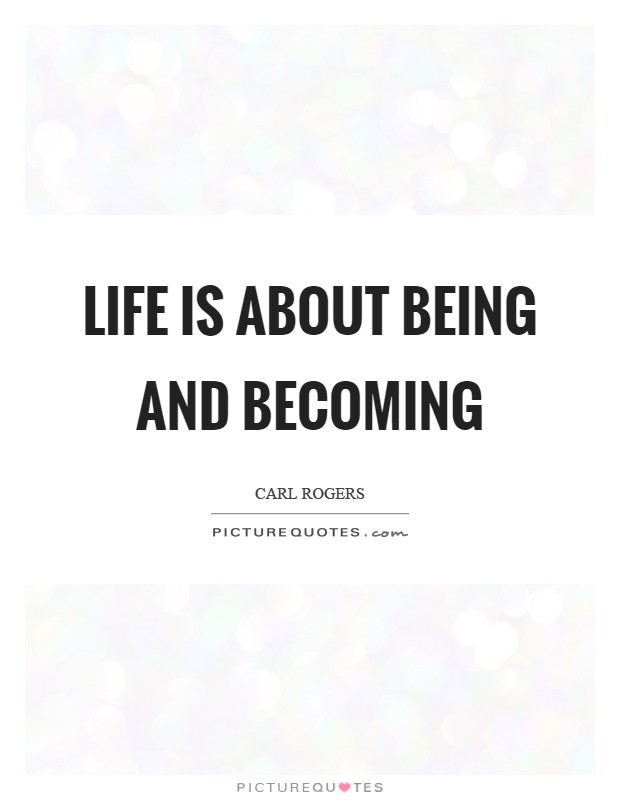Introduction
The phrase “biblical truth in the marketplace” has become popular among MAGA-Christian leaders. At first glance, it sounds noble - a call to live faithfully in public. But when examined closely, it reflects a worldview in which Scripture is reduced to a rigid ideology, wielded as a tool for political and cultural dominance. It suggests that the Bible is a fixed code of divine decrees, directly transferable into legislation and policy, with the goal of imposing “God’s will” on any society - especially a pluralistic society.
By contrast, Process Theology (e.g., Process Christianity) approaches truth as dynamic, relational, and rooted in God’s persuasive love. It does not treat the marketplace as a battlefield to be conquered, but as a shared commons where truth emerges in relationship, responsibility, and creative dialogue.
To understand the difference, we need to look at four key areas: how each views Scripture, the marketplace, authority, and ethics.
Matthew 7:16 is part of Jesus's teaching on false prophets, stating, "Do people pick grapes from thornbushes; figs from thistles?" This illustrates that just as a plant produces fruit in keeping with its nature, so too will false prophets be identified by their actions. The "fruit," or outward manifestations of their faith, will reveal their true character and actions, allowing people to recognize them for what they are.
Context of the Verse
- Beware of False Prophets: Jesus instructs believers to be wary of false prophets who appear righteous on the outside but are inwardly corrupt, like wolves in sheep's clothing.
- Identifying False Prophets: The verse follows the analogy of a good tree bearing good fruit and a bad tree bearing bad fruit, meaning a person's true nature is revealed through their actions and behavior.
Meaning of the Metaphor
- Fruit as Actions/Character: The "fruit" symbolizes the outward manifestations of a person's faith, which includes their behavior and works.
- Nature of the Tree: Just as a healthy tree produces its respective fruit (grapes from grapevines, figs from fig trees), a person's true character will produce corresponding fruits.
- Revealing True Nature: Therefore, by observing the "fruit" of a person's life—their actions and deeds—you can recognize their true nature, whether they are a true prophet or a deceptive one.
1. The MAGA Approach: Truth as Weapon
MAGA-Christianity treats the Bible primarily as a literal and static text. It is read selectively, with emphasis on passages that reinforce hierarchical structures, exclusionary norms, and culture-war talking points. The marketplace — whether of ideas, politics, or economics — is seen as a battleground where the faithful must “stand firm” against secularism, liberalism, and pluralism.
This approach assumes that biblical truth is self-evident, unchanging, and universally binding in exactly the same form as ancient Israelite law or early church instruction. Any deviation is condemned as compromise or apostasy. In practice, “truth” becomes a tool to mark insiders and outsiders, to reward loyalty, and to punish dissent.
The consequence is that truth is turned into a weapon: a way of controlling discourse, excluding difference, and justifying domination. Rather than engaging society with humility, MAGA Christianity approaches public life with suspicion and hostility, confident that its interpretation of Scripture alone represents God’s absolute will.
-
Literalized Scripture: MAGA-Christianity often treats the Bible as an inerrant rulebook. Truth becomes propositional, absolute, and transferable into slogans.
-
Marketplace as Battlefield: Public life is seen as a zero-sum contest where God’s people must impose biblical standards over against “the world.”
-
Power over Love: The emphasis falls on enforcing “God’s truth” through legislation, rhetoric, and dominance, with little regard for diversity or dialogue.
This approach mirrors the very forms of religious nationalism Bonhoeffer opposed in Nazi Germany: the fusion of religion and political ideology into a weaponized faith.
2. The Process Approach: Truth as Relational Becoming
Process Theology begins with a different assumption: reality itself is processual, always becoming, always relational. Scripture, therefore, is not a frozen rulebook but a dynamic witness to humanity’s evolving encounter with God. Its authority lies not in literal fixity but in its ability to call communities into deeper love, justice, and creativity.
The marketplace in this vision is not a battlefield but a commons. It is a place where diverse voices meet, where truth is not imposed but discovered together through dialogue and interaction. Process thought insists that God’s truth is persuasive, not coercive — it invites but does not compel. This means truth must be tested in community, weighed by its fruits, and continually reinterpreted in light of new contexts.
Where MAGA-Christianity closes the circle around what truth was, process thought opens the circle toward what truth is becoming. It insists that God is still speaking, still drawing creation toward greater beauty, harmony, and justice.
-
Dynamic Scripture: In a process lens, the Bible is not a static code but a living witness to humanity’s evolving encounter with God. Its authority lies not in literal fixity but in its power to inspire justice, compassion, and creativity.
-
Marketplace as Community: Rather than a battlefield, the marketplace is a shared space of dialogue and mutual influence. Truth is discerned in relationship, tested by its fruits of love and justice.
-
Love over Power: In process thought, God’s truth is persuasive, not coercive. It calls humanity into cooperative becoming, not conquest.
Here, truth is not owned but shared. It does not silence the other but invites all voices into the work of co-creation.
3. Competing Visions of Authority
The difference in how each side understands authority is stark.
-
MAGA Christianity: Authority is rooted in the literal text of the Bible, interpreted through the lens of conservative tradition and enforced by political power. This results in a rigid hierarchy: God speaks → the Bible records → we enforce. In this model, authority is top-down and unquestionable. Dissent is framed as rebellion against God himself.
-
Process Theology: Authority is rooted in Christ as the living Word, mediated through Scripture but always discerned in context. Authority is relational and dialogical — God calls, but humans respond freely and responsibly. Scripture is authoritative, but never in isolation from conscience, community, and the Spirit’s ongoing work in history.
This difference leads to two contrasting visions of the marketplace. For MAGA Christianity, authority justifies domination; for Process Theology, authority enables dialogue and growth. One uses power to enforce compliance; the other seeks understanding and cooperation.
-
MAGA Christianity: Authority rests in the literal text, interpreted through the lens of cultural conservatism and political power.
-
Process Theology: Authority rests in Christ as the living Word, continually interpreted in context, always calling communities toward justice, compassion, and creative transformation.
Where MAGA-Christianity seeks to fix truth in the past, process thought seeks to embody truth in the present, always open to God’s ongoing call.
4. Ethics in the Marketplace
Ethics is where the contrast becomes most visible.
-
MAGA Ethics: Right and wrong are defined by conformity to fixed codes. Success is measured by victory in cultural battles: passing laws, winning elections, controlling school boards, restricting rights. The guiding question is: Are we winning the fight to preserve biblical values against our enemies? This produces a binary ethic of winners and losers, insiders and outsiders.
-
Process Ethics: Right and wrong are discerned through love’s reach and creativity’s expansion. Success is measured by whether actions increase the well-being of all — human and nonhuman, individual and communal. The guiding question is: Does this action contribute to justice, compassion, and the flourishing of life? This produces an ethic of cooperation, responsibility, and mutual care.
Where MAGA Christianity divides the marketplace into opposing camps, Process Theology seeks to weave it into a shared commons. One works to preserve dominance; the other works to foster relational wholeness.
-
MAGA’s Ethics: Obedience is measured by conformity to rigid codes. The goal is victory — protecting “our” values against “theirs.”
-
Process Ethics: Responsibility is measured by love’s reach and creativity’s expansion. The goal is cooperation — seeking the good of all in an interdependent world.
In short: MAGA ethics divides the marketplace into winners and losers; process ethics opens it into a shared commons of becoming.
Conclusion
When MAGA-Christian leaders speak of “biblical truth in the marketplace,” they mean a static truth wielded for political control. It is truth as weapon: exclusionary, rigid, and triumphalist. Process Theology offers a different vision: truth as relational becoming, discerned in community, tested by love, and persuasive rather than coercive.
The contrast could not be sharper. One approach seeks to control the marketplace; the other seeks to transform it into a commons where God’s truth is lived out in justice, compassion, and creativity.
Summary Observation: If truth is to have meaning in public life, it cannot be reduced to slogans of power. It must be lived in the costly, dynamic work of relationship. Biblical truth in the marketplace is not about conquest but about co-creation. It is not about controlling society but about participating with God in its ongoing renewal.
Bibliography
MAGA-Christianity / Culture War Sources
(Useful to understand the mindset and rhetoric, even if problematic)
-
Eric Metaxas, Bonhoeffer: Pastor, Martyr, Prophet, Spy (Thomas Nelson, 2010).
-
Key text for how Bonhoeffer is repurposed in evangelical/MAGA narratives.
-
-
Eric Metaxas, Letter to the American Church (Salem Books, 2022).
-
Explicitly frames today’s America as a replay of 1930s Germany, urging Christians to resist “cultural capitulation.”
-
-
David Barton, The Myth of Separation (WallBuilder Press, 1992).
-
An influential but deeply flawed book promoting the idea of America as a “Christian nation.”
-
-
Stephen Wolfe, The Case for Christian Nationalism (Canon Press, 2022).
-
A systematic argument for merging Christianity with political control in the U.S.
-
Process Theology & Alternatives to Culture War
- Tripp Ruller, The Rise of Bonhoeffer, multi-series podcast
-
John B. Cobb Jr., Christ in a Pluralistic Age (Westminster, 1975).
-
A classic in Process Christology, emphasizing relational truth and interreligious dialogue.
-
-
Marjorie Hewitt Suchocki, God, Christ, Church: A Practical Guide to Process Theology (Crossroad, 1982).
-
A clear introduction to Process Theology’s dynamic view of truth, ethics, and community.
-
-
Catherine Keller, On the Mystery: Discerning Divinity in Process (Fortress, 2008).
-
Explores relational truth, pluralism, and public theology in a process framework.
-
-
Thomas Jay Oord, The Uncontrolling Love of God (IVP Academic, 2015).
-
Though not strictly process-only, it extends relational/process insights into theology of love and freedom.
-
-
Bruce Epperly, Process Theology: Embracing Adventure with God (Energion, 2011).
-
A very accessible introduction that connects process thought with daily ethical and public life.
-
Broader Critiques / Contextual Works
-
Kristin Kobes Du Mez, Jesus and John Wayne: How White Evangelicals Corrupted a Faith and Fractured a Nation (Liveright, 2020).
-
Essential for understanding evangelicalism’s drift into Christian nationalism.
-
-
Samuel L. Perry & Andrew L. Whitehead, Taking America Back for God: Christian Nationalism in the United States (Oxford, 2020).
-
Academic sociological study of Christian nationalism as an ideology.
-
-
Stephen R. Haynes, The Battle for Bonhoeffer: Debating Discipleship in the Age of Trump (Eerdmans, 2018).
-
Directly addresses how Bonhoeffer has been claimed by both MAGA Christianity and progressive theology.
-
✅ Summary Observation:
-
If you want to see how “biblical truth in the marketplace” is weaponized → Metaxas, Wolfe, Barton.
-
If you want to see how Process Theology reframes truth relationally and non-coercively → Cobb, Suchocki, Keller, Oord, Epperly.
-
If you want context and critique of the culture war itself → Du Mez, Perry/Whitehead, Haynes.












